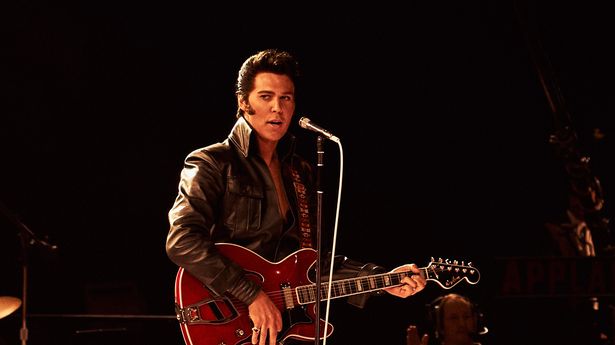
Telling the story of the King of Rock 'n' Roll, you better make sure that you make it good and give justice to the most iconic and most respected singer in American culture, which translates across the world in this biopic of Elvis, does just that.
The casting of actor Austin Butler looks like a mirror image of Elvis Presley, and at times you think Elvis has been resurrected and is acting in his own film!
Listen to Elvis through BOSE bluetooth headphones to hear the King!
The story goes back to the beginning before Elvis recorded at Sun Studios which was known to record and release black American blues music through Sun Records, when Elvis worked as a truck driver.
Throughout the film there is an injection of atmospheric music and distant music predominantly from Elvis Presley's songbook, which is showing the deep religious belief that Elvis had from when he was touched by God when he went to the local black southern Baptist church.
We are an independent digital magazine and welcome financial support to keep our digital web platform continuing our much valued work in promoting the latest entertainment and independent artists and bands across the world.
The story puts Elvis living with his parents amongst poor black Americans in Mississippi, rather than the other story which states that Elvis had to climb the fence to enter the black area where he listened to black 'blues' music and experienced spirituality in the black Baptist church.
Elvis was given knock backs by promoters and talent scouts and the owner of Sun Studios and Records Sam Phillips and his wife were not having much luck with the songs Elvis was coming in to record from four previous visits since 1953, until he recorded one song That's All Right (with the Mama removed), which was released as the A side and the next evening recording session was Blue Moon Kentucky on the B side of the 7 inch record.
There was a community of musicians and Elvis did not have any trouble socialising and hanging out in the black area, which at that time segregation was still enforced, but in scenes of the film Elvis was becoming a local hero and actually united black and white people in the early 1950s.
Soon television came knocking to boost ratings and having Elvis come and play a few songs, which caused a lot of problems because of his swinging hips and shaking his legs, ended up being seen by white middle class American men as provocative and with the music Elvis was releasing and singing it was considered as 'black' music, which was seen as corrupting young 'white' women and girls.
Dyson has the latest in technology appliances that can make your life efficient and easier
Throughout most of Elvis Presley's recording and acting in twenty-nine musical films race segregation was enforced and even when civil rights became part of American law during the mid to late 1960s there was a lot of social unrest due to racism and discrimination, which Elvis got into trouble with the authorities because he felt his artistic expression was being curtailed and he felt restricted and unable to conform as his swinging and shaking was part of his performance.
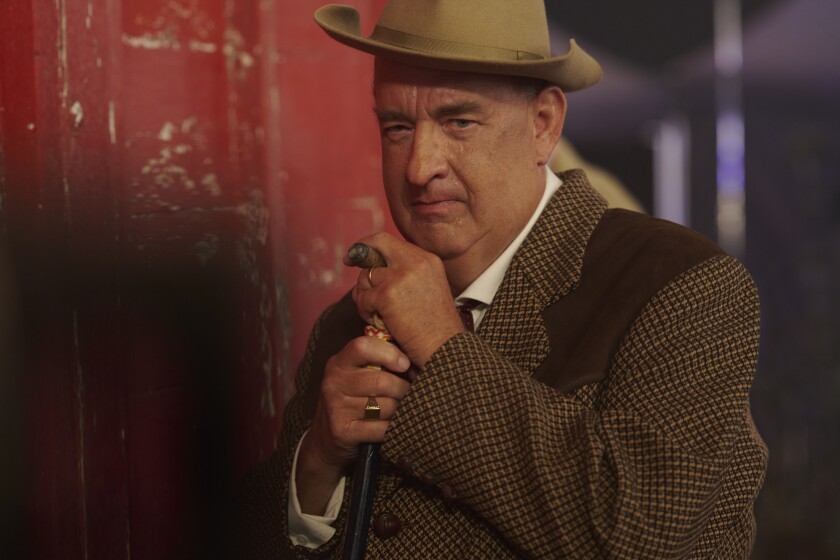
With Tom Parker realising that Elvis was a white boy he made his way into Elvis's life and became his manager until Elvis died in 1977, though surprisingly still having a certain amount of control over revenue and business decisions.
Though the film shows the ruthlessness of Colonel Tom Parker, an enlarged Tom Hanks, Elvis knew that he was the man to bring him success and he knew he had his back especially when negotiating lucrative contracts and deals that not only made Elvis a multi-million but also feathered his nest.
Buy the Elvis biopic on 4K Ultra HD Blu-ray an American iconic and still retains his rightful title as The King of Rock 'n' Roll!
The shame of this partnership between Elvis and Colonel Parker resulted in Elvis not leaving the United States or American soil, because Colonel Parker (Andreas Cornelis van Kuijk) was an illegal immigrant from the Kingdom of the Netherlands.
This meant that Colonel Parker could not leave American territory and thus prevented Elvis from seeing his fans across the world, including Great Britain, Europe, Japan, Australia, New Zealand, Africa, and the rest of the Americas.
To keep Elvis occupied Colonel Parker organised several American Tours for Elvis and then in-between for several years a residency at The International Hotel in Las Vegas.
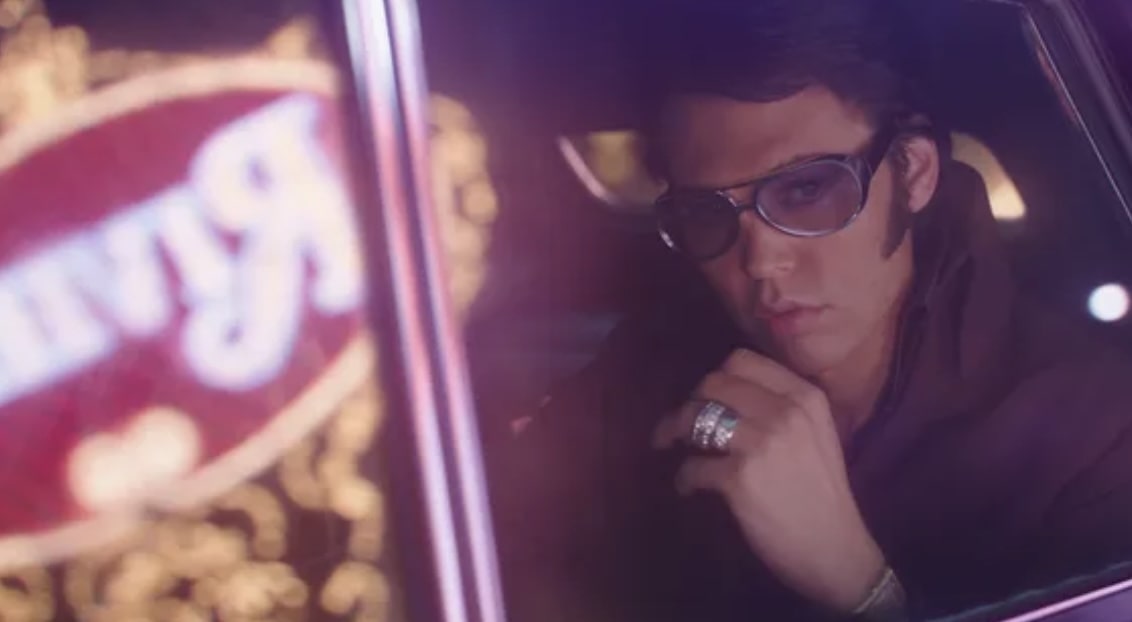
Furthermore, to prevent an eager and revitalised Elvis, it is strongly thought that Colonel Parker made threats against Elvis and in the film, Colonel Parker says to Elvis, "You need to stay in America to be safe and you have better security in the United States, than abroad."
This denied Elvis from visiting major foreign cities and connecting with his fans who may not have been able to travel to Las Vegas or American cities he toured.
Though cynically Colonel Parker got the first live Elvis show broadcasted by satellite from Aloha, Hawaii, USA across the world and is still the most viewed 'live' televised concert reaching 1.5 billion people.
Further information and facts on the life of Elvis Presley
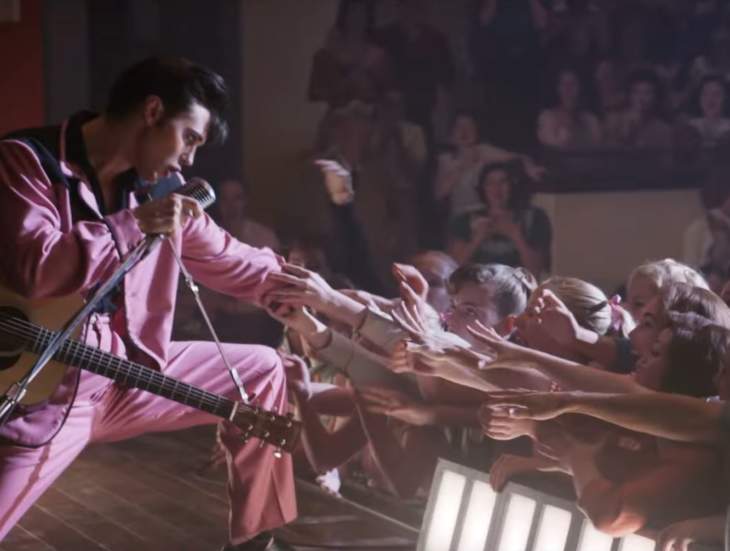
The Elvis phenomenon just kept on getting bigger and he nearly derailed his career, when he had to do an intimate concert with the governor of a Southern-State and the local Sheriff, but he was under strict instructions not to doing the swinging of his hips and shaking his legs and he had to wear a straight fitting black suit; but once Elvis started this concert he just couldn't contain himself and wanted to express himself as a person and performer for his faithful, which included wiggling his small finger indicting a small penis, which his chauffeur told him not to do where performing predominately for his audience of girls and young women, which gave a headache for Colonel Tom Parker.
This is why Elvis Presley ended up joining the army to make him into the clean-cut all-American boy, which worked and after his two-year service in Germany, he returned where he started his Hollywood acting career.
Though Elvis said that the majority if not all of the musical films he didn't like and felt they were quite cheesy.
Elvis wanted to start in more mature and films with meat on the bone storylines, which he did star in two films Charro a western and crime drama Change of Habit, both were commercial flops, but if you see these films, you see a Elvis that shows a proper actor without all of the songs and fanfare.
The musical films totalled twenty-nine from Love Me Tender in 1956 through to The Trouble with Girls in 1969, which even in today's standards is quite an output.
The soundtracks to these musicals were not songs or themes Elvis particularly liked, but according to reports Elvis sung these songs with the same passion as all of his more liked and seriousrecordings on albums released before and subsequently afterwards.
The film packs up from Hollywood for Elvis under Colonel Parker's supervision to get back to what the singer did best, sing!
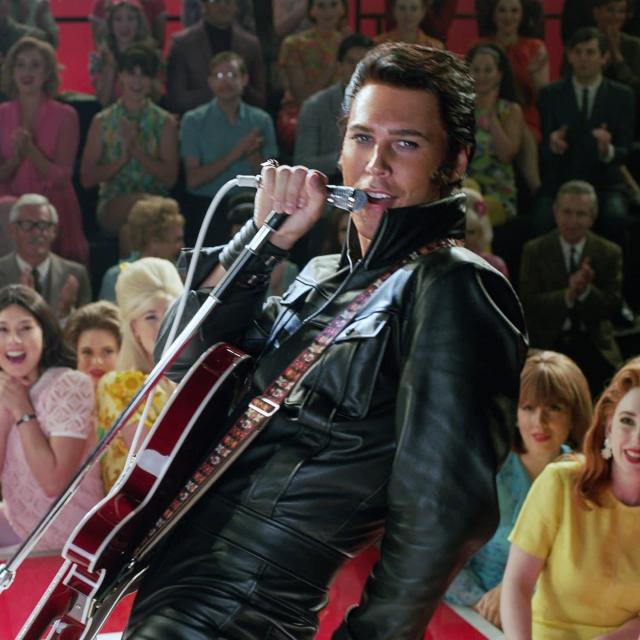
The next milestone in Elvis's career is the televised 68 Comeback Special, which saw a very handsome leather clad rocker Elvis.
Interestingly, it was supposed to be a Christmas special, and you see a flapping Colonel Parker telling the show's sponsor to get Elvis to wear his Christmas jumper, and when this does not materialise and even pressure from the sponsors literally wanting to rip up the T.V. contract did not persuade the show's producer to switch to the original 'Christmas' special theme.
Can you imagine if the show's producer did not let Elvis dress in his leathers and sing his Rock 'n' Roll music and engage with the audience, we would have not been blessed with the 68 Comeback Special show, which has become one of Elvis's iconic new looks from this period.
In 1968 you had the likes of Jimi Hendrix (who was in the front row of one of Elvis's shows and inspired him to pursue a music career and to be the showman as Elvis did), Cream, Rolling Stones, and The Beatles release Sgt Pepper's Lonely Heart Club Band album and stateside The Beach Boys releasing their masterpiece Pet Sounds, so the music had changed to a more psychedelic rock.
So, for Elvis to be of any significance in this period he had to compete with this new music and so what better way of going back to his roots of his music Rock 'n' Roll!
The next focus towards the end of Elvis's career and ultimately his life was the Las Vegas residency at The International Hotel.
Sadly, the film focussed on his divorce from Priscilla Presley in the 1970s and his last contact with his 9-year daughter Lisa Marie Presley before he boarded his jet aeroplane named after his beloved daughter.
By this time Elvis was in his fortieth year becoming overweight and highly dependent on medication often administered by his numerous physicians over the course of life especially in his late-30s until his death.
The Elvis Presley Enterprises was ordered to sue Colonel Tom Parker for what was latter said about his 'unethical' management style.
Elvis actually fired Colonel Parker while on stage (though this is disputed, as it was supposed to be in his dressing-room) at The International Hotel, Las Vegas, but had to reinstate him after he found out by his father Vernon that they were broke and Parker billed Elvis $8 million, which he could't pay him, thus reinstating him out of necessity rather than choice.
Surprisingly Colonel Parker countersued, and The Elvis Presley Enterprises ended up making an out of court settlement pay $2 million to him in exchange for relinquishing control over everything Elvis; and it was acknowledged that his 50% cut of everything Elvis earnt was excessive, though it was reported Elvis was happy to give him [Colonel Tom Parker] this cut.
However, later on Colonel Tom Parker was brought back in with the Elvis family, where Priscilla Presley spoke warmly and highly of Colonel Tom Parker, even going as far to say that both Elvis and the Colonel 'made history' together.
Well, without Colonel Tom Parker, Elvis may have been a star for a short period once the 1950s had ended, and the deals which Elvis did not want to get involved were lucrative for both of them and may not have been so without the Colonel.
Who said life was straightforward!
Elvis died of a heart attack at his Graceland Mansion in 1977 at the age of 42.
The shame about Elvis Presley is that if he stopped eating his Southern fried food, especially the peanut butter, banana and at times with bacon sandwiches and worked out a little bit, not to mention the pills and injections, he could be with us today.
You can speculate whether Elvis Presley wanted to live and whether he just had enough and the only performance that was left for him was death.
Looking in a more positive light we can still enjoy his craft whether his music, films, or live performances because it has all been recorded for us to enjoy and for the future generations to discover.
Long live The King of Rock 'n' Roll!
Available to pre-order, be quick as Elvis once again retains his top spot as the King of Rock 'n' Roll!
Elvis Blu-ray DVD
Elvis 4K Ultra HD Blu-ray
The Elvis soundtrack is available on CD


